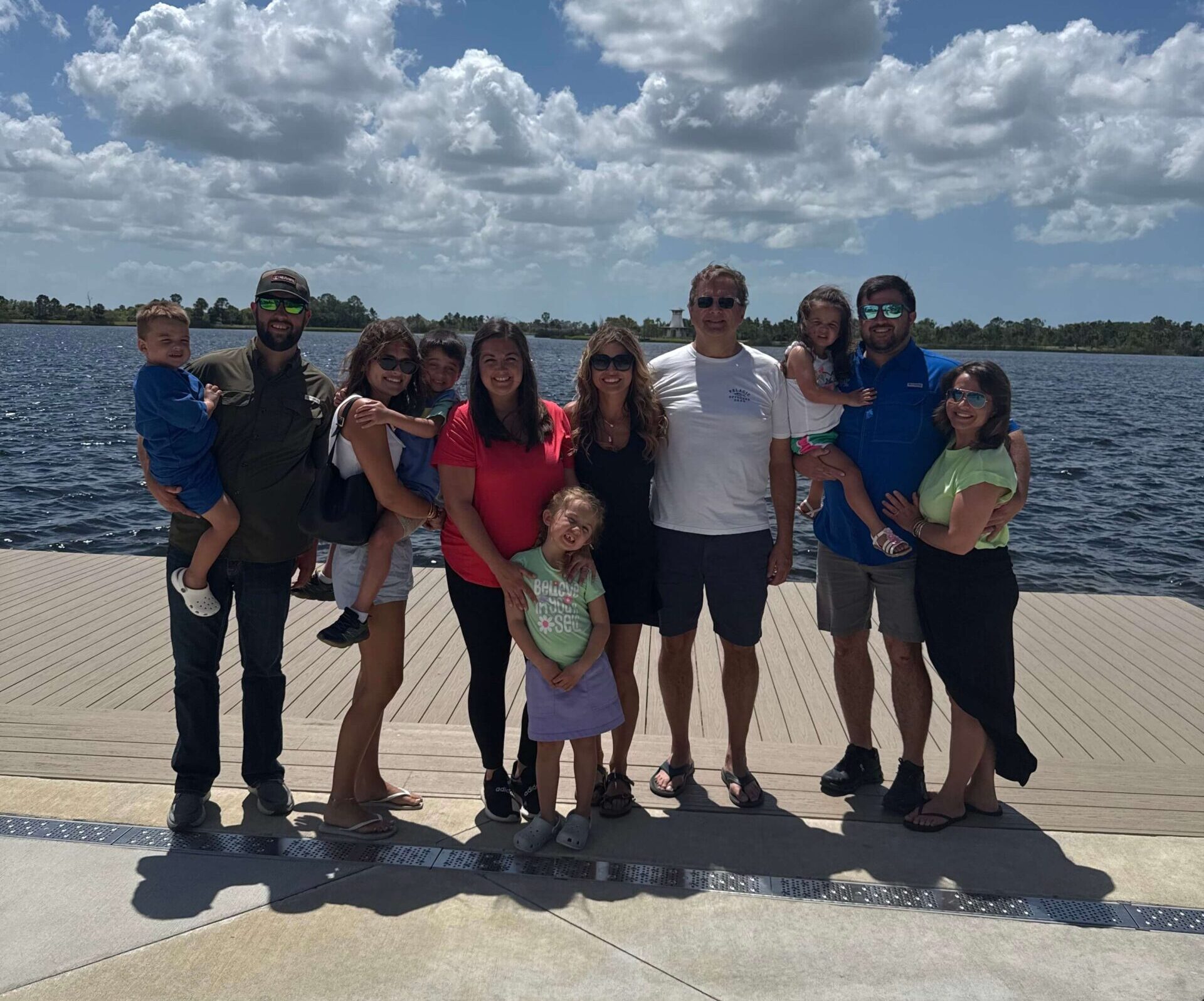Homebuyer Highlights: Organ Donation is Not Only Life-Changing but a Part of the Walsons’ Legacy
It’s a date that likely everyone else viewed as just another day on the calendar – July 30, 2024. But for Jeff Walson, his wife, Kim, and their entire close-knit, blended family, it was the start of a bright road ahead, a sign of years to come, spent together, and many prayers answered. After a long battle with end-stage renal disease, Jeff underwent a kidney transplant that not only gave him a new lease on life but a deeper bond with his son, Jake, that very few can fully grasp, and the chance to see their Lee Wetherington Home in Everly at Wellen Park completed, situated just 30 minutes from Sofie, his “bonus daughter,” studying at Florida Gulf Coast University.
Prior to his transplant, Jeff experienced a “slow burn” with the disease for roughly six years. While he lived a relatively normal life, alongside Kim in Central Kentucky, his health continued declining to where he couldn’t squat, kneel and became very tired. Then came their three-day design consultation with Lee Wetherington Homes in Sarasota – of which Jeff spent the majority away at Mayo Clinic seeking a second opinion. And, two days before Christmas, he received a prognosis: just a year to live – if he didn’t undergo a kidney transplant.
“In the same sentence they said, ‘But the waiting list is currently four to six years,’” said Jeff, who also sought a second opinion from UK HealthCare. “A lot of people have been through stuff. I thought there were organs in refrigerators ready to go for people to save their lives – I didn’t know there was such a shortage.
“… I didn’t ask anyone to give me a kidney – it’s just not my style. I went on and started making pretty serious preparations to depart and some people called in and actually got tested but there was no match. But, you know, I’m just so grateful that anyone would.”
With his blood being Type O, Jeff was in a unique position. He could donate to anyone yet only receive an organ from a person with the same blood type and right antibody requirements. The reality was that his only answer lied in a living donor – and that answer came after five months of searching when Jake became the “hero” that Jeff was throughout his life.
“I was working around the house – he was helping me on a project,” said Jeff, who also has a biological daughter, Savannah, and four grandchildren. “He stepped out to take a phone call, came back in and said, ‘Well, that was a pretty important call.’ So I said, ‘What’s up, bud?’
“And he said, ‘I’m going to give you a kidney if you’ll let me.’ We had no idea he had even gotten tested because, like I said, I didn’t ask anybody, much less Kim or my children. … This is my son, and I had to be convinced that he would be okay with one kidney. He’s doing great – but I had kind of a quandary for a while.”
There was no world in which Jake wouldn’t donate to save his father – and, for Jeff, it was a “weird role reversal.” Kim described Jake, a police officer and SWAT team member in Kentucky, as instinctively having a “servant’s heart.”
“My husband is a guy’s guy – he’s an expert in anything he touches,” said Kim. “He’s an all-in kind of guy and, you know, to recognize what a man you’ve raised and have that role reversal where he’s taking care of you, it was a beautiful thing to see. … That’s why he’s the type of police officer that he is.
“He’s a de-escalator. He’s a nurturer. He’s a helper.”
Jeff’s story is not only one of survival, but another chapter to their family’s legacy, especially within the origins of today’s process of becoming a donor at the DMV. Jeff’s late father, Arthur, who for 18 years served as the Clark County Circuit Clerk, overseeing drivers licenses at the time, ultimately founded the Kentucky Trust for Life in 1992 – now part of Donate Life America, embedded in 32 states. In Kentucky, organ donation varied between communities with no unified system. After watching a cousin in need of a heart transplant pass away, Arthur worked with the state government to pass a bill adding the option to become an organ donor on drivers license registrations and renewals.
Organ donation continued to weave itself through the family’s life. In Pike County, Kim’s late father was an organ donor, and his kidneys gave a survivor the chance to be a grandparent. Even Jeff’s transplant date was scheduled on the 13th anniversary of his father’s death – the day Arthur’s only grandson saved his lone son’s life.
“Being a living donor is a big deal for someone to give up, you know, a body part while they’re alive,” said Jeff, whose calling is now to spread awareness. “But when you’re gone and knowing that could save multiple lives, it’s a pretty small sacrifice – I don’t think it’s a sacrifice at all.
“When you’re gone, you’re not going to feel anything, and someone else can have your corneas and see for the first time, or a kidney or a heart. It’s an amazing thing.”
And seeing their custom home completed was a goal achieved in itself.
“I didn’t know how we were going to get that house built, but I contacted them and told them my plight, and basically said, ‘No matter what – even if I’m not here on the closing date – we’re finishing this house,’” said Jeff. “I’m doing this – this is Kim’s house. They were very kind and understanding and I’ll just always appreciate that they helped me get over the goal line.”
To learn more about the life-saving impact of organ donation, visit DonateLife.net.

